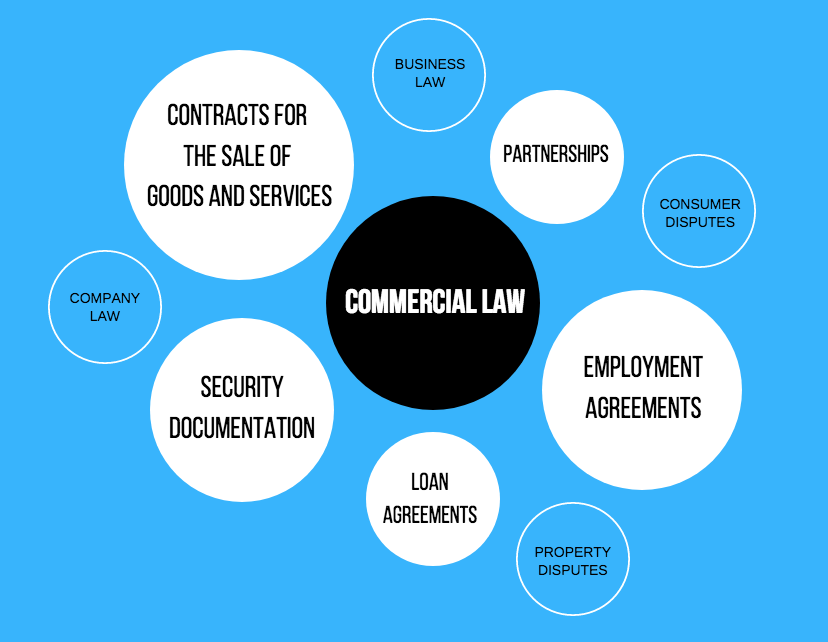
Commercial law, also known as corporate law or business law, focuses on laws pertaining to commercial transactions. Commercial law falls under the umbrella of civil law and incorporates a range of topics such as contracts for the sale of goods or services, the establishment and administration of businesses, partnerships and/or companies, employment agreements, loan agreements and other security documentation, consumer disputes, and property disputes.
A contract is a verbal or written agreement between two parties, for one party to perform a certain obligation in exchange for the other party performing a certain obligation. Most commonly, one party will agree to provide a good or service in exchange for payment of money.
Written contracts provide the parties with far greater certainty than a verbal contract as a written contract should set out all of the terms of the agreement between the parties. This ensures that the rights and obligations of the parties are clearly established, thereby reducing the possibility of a dispute over the terms of the agreement.
For a contract to be legally binding, there are a few essential elements that must be satisfied. There must be:
There are several ways in which a contract can be terminated. They are:
If you need a contract written, reviewed or need assistance with terminating a contract, please contact Stone Group Lawyers on (07) 5635 0180 to book your complimentary 30 minute consultation with one of our friendly commercial lawyers.
"*" indicates required fields
Suite 31106, Level 11 Southport Central Commercial Tower 3,
9 Lawson Street, Southport QLD
Riverside Centre
Level 37, 123 Eagle Street
Brisbane City, QLD 4000
Ⓒ 2024 Stone Group Lawyers | Site By Merge

